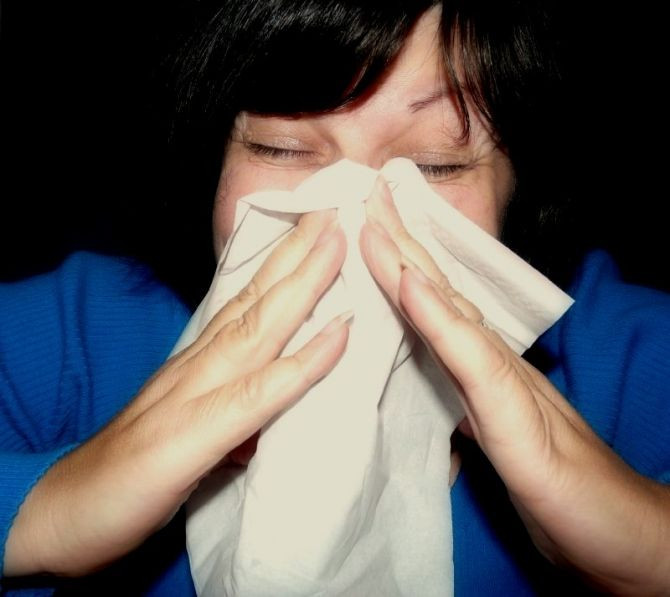Could Botox Be the Cure for Allergies?

As winter looms, allergy sufferers receive a bit of relief - until next spring. But maybe a change is on the horizon? Researchers in Australia are looking to see if the wrinkle minimizer Botox could be used to treat hay fever. The study would have 70 participants rub a Botox gel under their noses in order to provide three-months relief from sneezing, watery eyes and itchy noses.
"Part of why this is possible is that the Botox molecule has been re-engineered to be able to penetrate through the skin but also through the lining of the nose," Phillip Bardin, a professor at the medical center affiliated with Melbourne's Monash University, its director of Sleep and Respiratory Medicine, and Editor-in-Chief elect of Respirology, told the press.
Hay fever consists of allergies to outdoor triggers, especially pollen but also ragweed, trees and grass. Sufferers tend to be most affected on dry, warm, windy days where a lot of pollen is swept around in the air; for that reason, sufferers tend to be least affected in winter months and most affected in the springtime. Symptoms include nasal congestion, sneezing and coughing.
Previous research on Botox, or botulinum toxin, has found that use of the toxin can be a powerful ally against everything from cerebral palsy to multiple sclerosis to asthma to depression. The reason that Botox is so good at controlling muscles is that it is a purified form of a nerve poison released by bacteria. When wielded by bacteria, it causes muscle paralysis and can be fatal.
When its power is wielded in a gel, Botox should block the chemicals from spreading from nerve endings. That disruption should play a huge role in disarming symptoms.
Though Botox has been in the news a lot recently for health-related purposes, it is normally thought of as a method to smooth over wrinkles. Interestingly though, its use against wrinkles was only deployed in the 1990s. Botox was first developed to treat eye disorders, like misaligned eyes or spasms, but it has proved to be a gift that keeps on giving.
Three months may not seem like a long time, but it is significantly better than the daily pills that allergy sufferers must contend with now.
"It seems almost silly to be struck down by something like hay fever but it really can be debilitating," Anesti Steryos, a severe allergy sufferer, said. "You're sneezing uncontrollably, your nose is pouring and your eyes become incredibly itchy. It would make managing my hay fever a lot easier if this gel could offer longer-lasting relief."



























